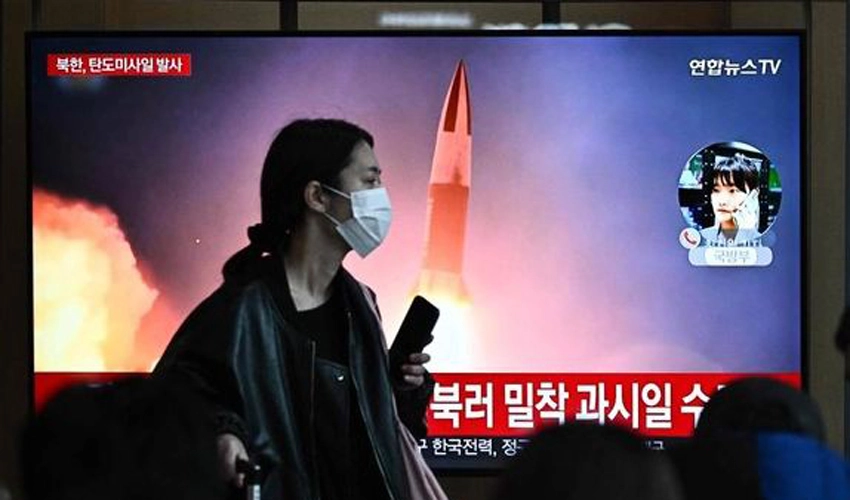North Korea fires ballistic missiles as Blinken visits Seoul

SEOUL, South Korea (AFP) - North Korea fired multiple short-range ballistic missiles on Monday in what analysts said was a calculated move to grab attention as US Secretary of State Antony Blinken visits South Korea for talks.
The launches come just days after Seoul and Washington's annual Freedom Shield drills, which this year involved double the number of troops, ended Thursday. Pyongyang this month warned that Seoul and Washington would pay a 'dear price' over the drills, and later announced that North Korean leader Kim Jong Un had guided an artillery unit it says was capable of striking the South Korean capital.
"It's a highly calculated move timing-wise by Pyongyang to fire multiple missiles to show they are capable of doing such an act even when the top US diplomat is in town," Professor Choi Gi-il of military studies at Sangji University told AFP. North Korea typically stages missile launches 'as a tit-for-tat' after US-South Korea joint drills, Han Kwon-hee of Korea Association of Defence Industry Studies told AFP.
Fighting disinformation including AI-enabled content is a 'vital' national security interest and diplomatic priority for the United States, Secretary of State Antony Blinken said Monday at a democracy summit in Seoul. Blinken is in South Korea for this week's third Summit for Democracy, an initiative of US President Joe Biden, which brings together government officials, NGOs and civil society members.
Saying that digital technologies, including both social media and artificial intelligence, were "dramatically accelerating the speed and spread of disinformation," Blinken outlined US efforts to push back against the issue. "Building a more resilient information environment is a vital US national security interest and an urgent priority for our diplomacy," he said.
"Today, the State Department is releasing what we're calling a 'Democratic Roadmap' of recommendations to help people become more aware of and resistant to information manipulation," he said. This would include "encouraging social media platforms to label AI-generated content, so users know when an image is real or when it is not," he said.
Blinken also outlined a raft of efforts to support the media industry, including a crackdown on "the misuse of commercial spyware to surveil and harass journalists, human rights defenders, and others –- including leveraging sanctions, export controls, and visa restrictions to hold governments and firms accountable".
At last year's summit, 10 countries committed to ensuring spyware technology was deployed "consistent with universal human rights and basic freedoms," he said, with another half a dozen nations -- including host South Korea -- signing on this year. Propaganda-spewing websites have typically relied on armies of writers, but generative artificial intelligence tools now offer a significantly cheaper and faster way to fabricate content that is often hard to decipher from authentic information.
Hundreds of AI-powered sites mimicking news outlets have cropped up in recent months, fueling an explosion of false narratives -- about everything from war to politicians –- that researchers say is stoking alarm in a year of high-stake elections around the world. Experts say that auto-generated misinformation could have a major impact on the US 2024 election, with many other countries, including South Korea which has parliamentary elections in April, also concerned about the issue.







